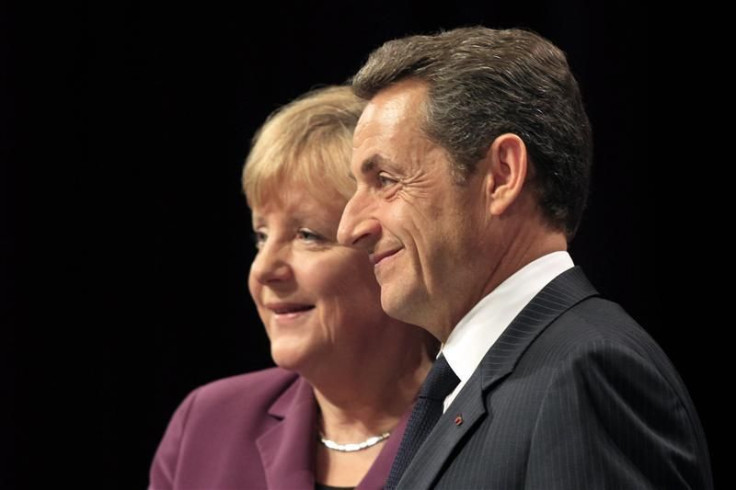Merkel, Sarkozy Define Agenda for European Council Meeting to Save Euro

French President Nicolas Sarkozy and German Chancellor Angela Merkel announced measures to be discussed at this week's crucial European Council meeting.
The first point to be discussed Thursday and Friday will be the proposal of sanctions for countries that run budget deficits of more than 3 percent of their Gross Domestic Products. These sanctions will be recommended by the European Commission and will apply unless a majority of the member states vote against them.
There will also be discussion on a Golden Rule, ensuring budget and deficit discipline will be written into the constitution of every eurozone member state. The European Court of Justice will decide whether countries have broken the rules but will not be able to overrule national governments.
In addition, there will be no further requests for the private sector to write down sovereign debt.
Finally, decisions within the European Stability Mechanism, the permanent eurozone bailout fund currently foreshadowed by the European Financial Stability Fund, will be taken by a qualified majority of member states, so as to prevent decisions being delayed by the objections of one state.
Sarkozy and Merkel reaffirmed their respect for the independence of the European Central Bank and again ruled out establishing joint eurobonds to guarantee all eurozone debt. The proposals reflect a level of compromise between the diverging views of the respective leaders concerning the best way to resolve the crisis and co-ordinate eurozone fiscal and economic policy.
The leaders stated they hope to establish whether or not to press ahead with treaty changes among all 27 member states or only an agreement among the 17 eurozone members at this meeting. The hope is that a treaty text could be agreed upon by mid-March and ratified by its signatories soon afterwards.
The reform of the eurozone is necessary for both the short-term survival and the long-term health of the single currency.
© Copyright IBTimes 2024. All rights reserved.











